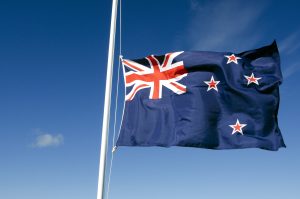The annual Asia-Pacific Economic Cooperation (APEC) Summit is an event circled and highlighted in Indo-Pacific countries’ diplomatic calendars. However, New Zealand’s Prime Minister-elect Christopher Luxon has opted to cross it off the calendar, as he is preoccupied negotiating the shape and policy direction of the country’s next government.
The three coalition parties – Luxon’s National Party, the ACT Party, and New Zealand First – have failed to reach agreement after New Zealand went to the polls more than a month ago. Somewhat embarrassingly, the elapsed time since the election meant the caretaker Labor government had to be officially reappointed, as their constitutional mandate was set to run out before a new government is formed.
While less than ideal, it is not unusual for New Zealand governments to take more than a month to form, owing to the country’s proportional representation electoral system. Situations like this are an unfortunate consequence of having indecisive election results.
Until Luxon is officially sworn in as the country’s 42nd prime minister, he is unable to represent the country in an official capacity at diplomatic events – such as the ongoing APEC Summit in San Francisco.
In Luxon’s place, New Zealand sent current Trade Minister Damien O’Connor. O’Connor’s tenure as trade minister is unlikely to last much longer than a week more, and he is ranked tenth in what will soon be Labor’s opposition caucus.
Ex-Foreign Minister Nanaia Mahuta would have been the obvious choice to represent New Zealand in a caretaker capacity, but she failed to be re-elected to parliament in last month’s election.
Taking her place, interim caretaker Foreign Minister Grant Robertson has been in the job for less than a week, and is unlikely to be there for much longer than a few more days.
This is a major missed opportunity for New Zealand. While the experienced O’Connor will be a stable pair of hands representing New Zealand’s interests at the summit, number 10 on the opposition benches is no replacement for the incoming prime minister.
Luxon told 1News earlier this week he’d “love to go” but “there’ll be another APEC.” Of course there will be another APEC, but not one where leaders from the other 20 APEC member states will make a particular effort to meet a brand new prime minister.
More important than economic cooperation dialogue, it’s a missed opportunity for Luxon to break the ice with officials or leaders from a number of New Zealand’s most important partners, including China and the United States.
Such significant multilateral meetings do not come along every month, so Luxon will have to wait for a while until the next diplomatic version of speed dating presents itself. When it does, he needs to capitalize on it to make up for his absence this week.
Coalition talks are expected to wrap up in the coming days, and tradition would suggest the new prime minister will be on a plane shortly after to greet the Australian prime minister.
Luxon rightly says he wants to “build rapport and relationships” with key world leaders, and getting on the plane sooner rather than later is the best way to achieve this, especially given his absence at APEC.
Let’s hope awkward coalition arrangements do not hinder effective governance over the course of this government’s three years in office, as they unfortunately have in this case.

































